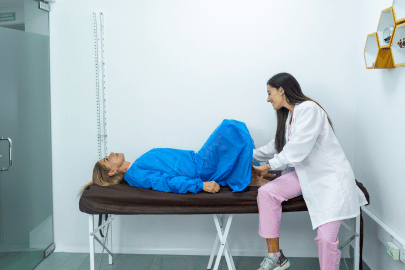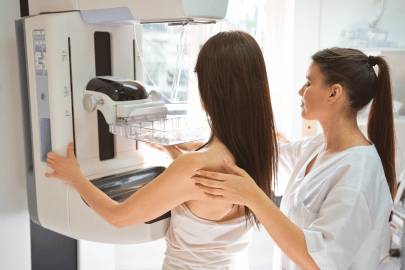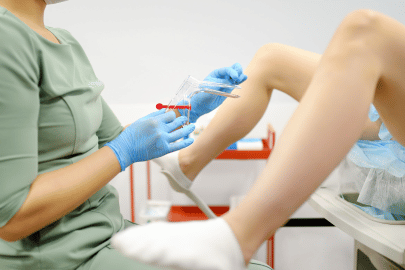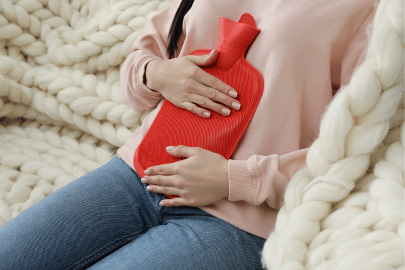STD Screening and Treatment at WCA
STD Screening and Treatment Services Gynecology STD Screening and Treatment at The Women’s Center of Athens STD screening is an essential part of maintaining your overall health, especially if you’re sexually active. Regular testing helps detect sexually transmitted infections early, even when no symptoms are present, so they can be treated quickly and effectively. At […]
Pap Smear and HPV Testing at WCA
Protect your cervical health with Pap smears and HPV testing at WCA. Early detection of abnormal cells and HPV helps prevent cervical cancer. Schedule your screening today.
Annual Wellness Exam at WCA
Stay on top of your health with annual wellness exams at WCA. Our board-certified providers offer thorough breast, pelvic, and physical assessments tailored to your needs. Book your appointment today.
STI Screenings: Why Routine Testing is Essential for Your Sexual Health

Sexually transmitted infections (STIs) often show no symptoms, yet they can have long-term effects on your health if left untreated. Routine STI screenings are a proactive way to safeguard your well-being and that of your partners. This guide explains the importance of regular STI testing, what to expect during a screening, and how often you […]
Pelvic Exam: What to Expect and Why They Are Important

A pelvic exam is a routine part of women’s healthcare, helping detect potential issues early and ensure overall reproductive health. While the thought of a pelvic exam can feel intimidating, understanding its purpose and process can ease concerns and highlight its importance. What Is a Pelvic Exam? A pelvic exam is a physical examination of […]
Mammograms: The Key to Early Breast Cancer Detection

Mammograms are a vital tool for detecting breast cancer in its earliest stages, often before symptoms appear. Early detection significantly increases treatment success rates and can save lives. This article explores why regular mammograms are essential, what to expect during the procedure, and when to schedule your screening. What Is a Mammogram? A mammogram is […]
Pap Smears & HPV Testing: Protecting Your Cervical Health

Pap smears and HPV testing are essential tools for maintaining cervical health and preventing cervical cancer. Regular screenings can detect early changes in cervical cells and identify high-risk human papillomavirus (HPV) infections, enabling timely intervention. This article explains the importance of these tests, how they work, and what to expect during a screening. What Is […]
Amenorrhea (Absent Periods): Causes, Symptoms, and When to Seek Help

Missing a period can be an unsettling experience, especially if it’s unexpected. Amenorrhea, or the absence of menstruation, can be a natural occurrence in some cases or an indicator of underlying health issues. This article explores the causes of amenorrhea, its symptoms, and what it might mean for your overall health. What Is Amenorrhea? Amenorrhea […]
Heavy Menstrual Bleeding (Menorrhagia): Causes and Management

Heavy menstrual bleeding, medically known as menorrhagia, is a common yet often overlooked condition that affects many women. It’s defined as excessive menstrual blood loss that interferes with daily life. While occasional heavy periods may not be a cause for concern, persistent or severe symptoms warrant attention. This article explores the causes of heavy periods […]
Menstrual Pain (Dysmenorrhea): Causes and Effective Relief Strategies

Menstrual pain, medically known as dysmenorrhea, is a common experience for many women during their reproductive years. While it is often considered a normal part of the menstrual cycle, severe or persistent pain can impact daily life and may signal underlying health concerns. This article explores the causes of menstrual pain and offers practical strategies […]


